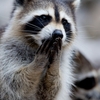Not Sure About the Answer?
Find an answer to your question 👍 “Animal farm chapters 3 and 4 summary ...” in 📗 English if the answers seem to be not correct or there’s no answer. Try a smart search to find answers to similar questions.
Search for Other Answers
You Might be Interested in
7 1/5 subtract 6 2/5 equals what
Answers (2)
What are some ways syntax can affect an entire paragraph of narrative work
Answers (1)
Why did the nazi party consider children unproductive
Answers (1)
Of Mice and Men- Write a paragraph answer to the following questions. Use quotes froom the book to support your answer. The final paragraph of chapter 2 focuses on Candy's old dog, who is mentioned numerous times throughout the chapter.
Answers (1)
What challenge did Roosevelt face in presenting his Four Freedoms speech to his audience?
Answers (1)
New Questions in English
In a short essay of 2-3 well-developed paragraphs, compare and contrast reading the story with watching the video. First, evaluate the choice of costumes, set, and actors in the film compared with the text version.
Answers (1)
How were Munodi's lands and home different from the others in the area? A. His were twice the size of everyone else's. C. His home was filled with art works and expensive furniture. His lands were covered with landscaped gardens. B.
Answers (1)
1. How does Johnny react when dally tells him that they beat up the socs? 2. What does Johnny say to Ponyboy before he dies? What do you think it means?
Answers (1)
The philosophical school most associated with Emerson is O A. Empiricism. O B. Transcendentalism. O C. Yale. D. Harvard
Answers (2)
Which sentence has a verb in the passive voice? A) The workers will repair our street tomorrow. B) Our neighbors demanded that someone repair our street. C) I fell off my bike when I accidentally rode it into a pothole.
Answers (1)

